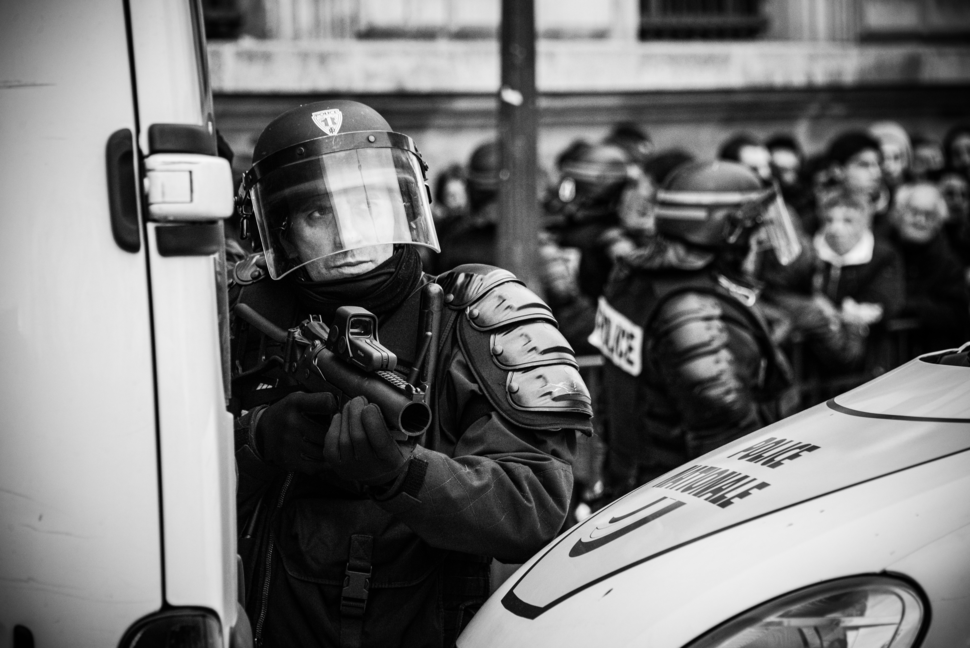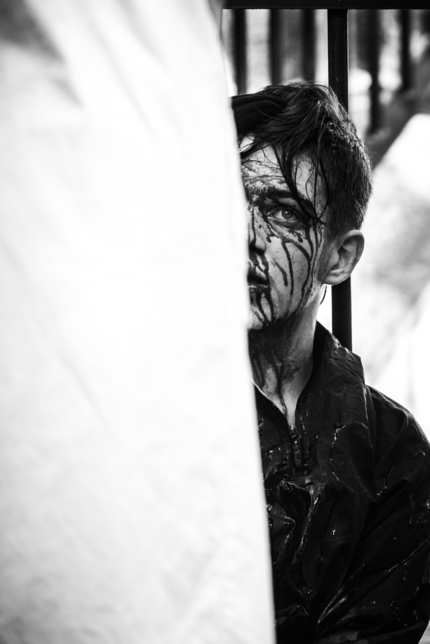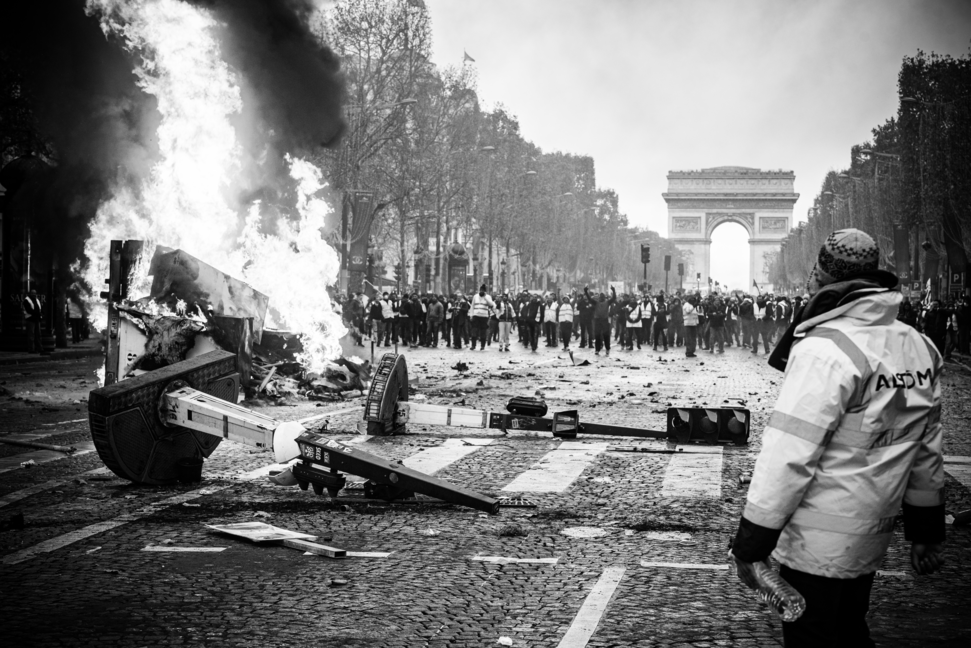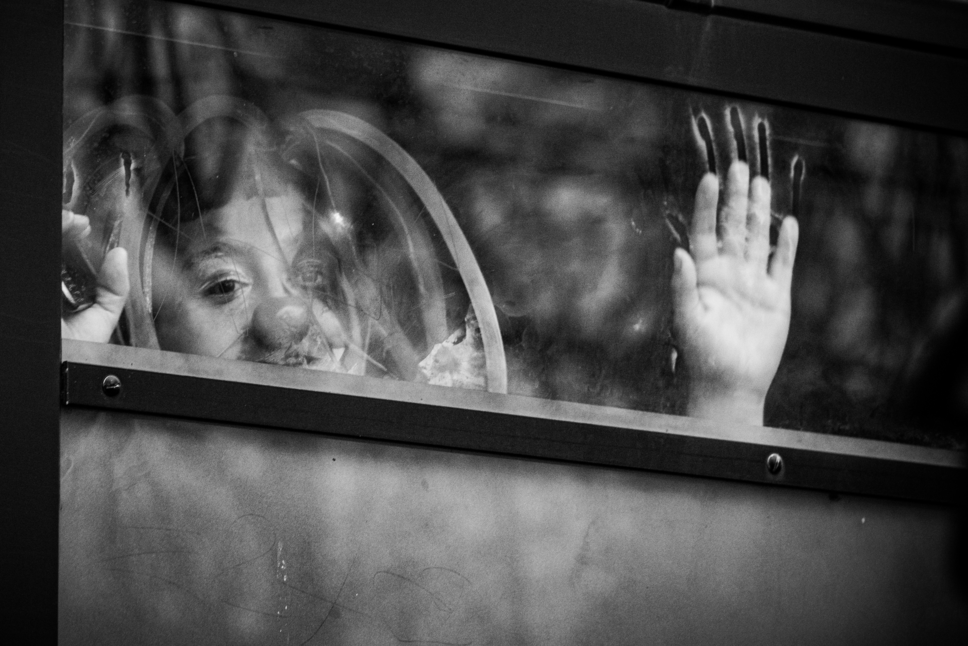The Right to the Image: A stream of (un)conscious thought
Part I.
What is ownership?
ownership
/ˈəʊnəʃɪp/
noun
the act, state, or right of possessing something.
Ownership is possession. Ownership is responsibility.
What is responsibility?
responsibility
/rɪˌspɒnsɪˈbɪlɪti/
noun
1.
the state or fact of having a duty to deal with something or of having control over someone.
"a true leader takes responsibility for their team and helps them achieve goals"
synonyms:authority, control, power, leadership, management, influence; duty
"we train those staff who show an aptitude for managerial responsibility"
2.
the state or fact of being accountable or to blame for something.
"the group has claimed responsibility for a string of murders"
synonyms: blame, fault, guilt, culpability, blameworthiness, liability"the organization denied responsibility for the bomb attack at the airport"I own my story, and it is mine to give away or keep. My story is my possession. I will share it with you if I choose to.
What if you can't make that choice? What if your story is taken from you?
How was it taken away from you? What did you do?
There are a million ways someone can take a story from you.
Especially in the age of social media.
It’s retelling and retransmission. It’s Chinese whispers.
Instagram: you post an image. Someone shows the image to someone else. They take it out of its context, away from its intended audience, they recontextualize, they can even repost and put their own story, their own perspective on top of it.
But that’s the same of every form of art and media. You, THE ARTIST, expose yourself and in exposing yourself, in accepting the exposure you have to accept a multitude of perspectives. It’s reader response theory.
What’s that?
A theory, which gained prominence in the late 1960s, that focuses on the reader or audience reaction to a particular text, perhaps more than the text itself.
The reader creates the story in their own image, constructing it from their interior world.
… connected to poststructuralism’s emphasis on the role of the reader in actively constructing texts rather than passively consuming them.
Do we passively or actively consume media?
All consumption is active. The moment you are required to interact in some way, you are actively engaging, consuming.
You have to choose which news websites to engage with, which social media accounts, which Netflix show.
We actively consume media, which means that when we consume it we have to take responsibility for the narratives we create.
Correct.
What about the news?
You actively choose which newspapers to read, which reports to watch.
The news is retelling and retransmission of an event or a story. Often, the retelling without the right of the subject to defend, or to give your own point of view.
What if you don’t accept the exposure, what if the exposure is forced upon you?
Did you sign a release form?
What about Alan Kurdi, could he sign a release form?
Alan Kurdi?
Alan Kurdi, the three-year-old Syrian boy who drowned on 2 September 2015 in the Mediterranean Sea.
Could he sign a Release Form? Do you think he’d want his last moments to be used in that way?
Maybe. Maybe he would have grown up to be an activist.
What if he hadn’t?
Part II.
A Release Form terminates all liability. It removes responsibility.
It removes responsibility from anyone. It takes your story, puts it in the hands of someone else and then they’re free to do what they please with it, and you can’t complain. It gives ownership to someone else, but without consequence.
If you sign it, we own your image.
If you sign it, we own your voice.
Then you have
No.
Right.
To.
Complain.
How.
We.
Choose.
To.
Use.
You.
We WILL use you.
You’d better hope we use you in the right way.
"The global spreading of this snapshot ... is justified as a way of raising awareness about the migrant crisis. Please. It's more like a snuff photo for progressives, dead-child porn, designed not to start a serious debate about migration in the 21st century but to elicit a self-satisfied feeling of sadness among Western observers."
Part III.
When I create a project, who am I really responsible for? My perspective? The people on the screen? What if my perspective isn’t aligned with the people on the screen? Who’s right then?
Starving child and vulture, Kevin Carter, 1993. Pulitzer Prize.
The man who took the picture of the starving child and then killed himself.
We are desensitized to the images around us, because journalism has removed the shock factor.
desensitize
/diːˈsɛnsɪtʌɪz/
verb
make less sensitive.
"creams to desensitize the skin at the site of the injection"
make (someone) less likely to feel shock or distress at scenes of cruelty or suffering by overexposure to such images.
"the media had desensitized him to the horror of violence"
free (someone) from a phobia or neurosis by gradually exposing them to the thing that is feared.
The media had desensitized him to the horror of violence. The banality of Evil.
I don’t feel shock when I see the starving child, I don’t feel shock when I see the dead boy. I don’t feel shock when I see pictures of torture from Guantanamo Bay. I don’t feel shock when I see women in jail for aggravated murder (their real crime: a miscarriage). I don’t feel shock when I see waterboarding. I don’t feel shock at the face of my dead best friend, fallen from the fourth floor. I don’t feel shock when I fall over, and take a chunk out of my arm, watch the blood slowly trickle down. Trickle down then pour out.
I do feel shock when I see animals being tested on.
Why animals? They’re no more voiceless or defenseless than a child?
No, but the images aren’t shared in the news every day. Maybe if I grew up in a lab that tested on animals, or worked in a factory farm.
Maybe if you were closer to violence, if you weren’t separated by lifetimes, you’d react more too.
I see images of violence every day. We are inundated. We are drowning in violence. We are drowning in the potential of humanity, and not the potential of its beauty, but the lack of limitations on our imagination.
If you can think of a horror, it exists.
If you can think of a horror, you have probably already seen it.
But does that mean you should or shouldn’t show it?
‘I'm really, really sorry. The pain of life overrides the joy to the point that joy does not exist. ...depressed ... without phone ... money for rent ... money for child support ... money for debts ... money!!! ... I am haunted by the vivid memories of killings & corpses & anger & pain ... of starving or wounded children, of trigger-happy madmen, often police, of killer executioners ... I have gone to join Ken if I am that lucky.’
Kevin Carter.
What was the name of the starving child that he photographed?
Kevin Carter.
Kevin Carter.
Kevin Carter.
Kevin Carter.
Kevin Carter.
Kevin Carter.
Kevin Carter.
Kevin Carter.
Kevin Carter.
Kevin Carter.
Should his suicide note have been made public?
Part IV.
You’re going to go and work in the Bronx. You want to be a facilitator, you constantly refer back to being this in-between person trying to bridge the gap between the haves and the have nots, but have you ever thought about context? What is your responsibility if you embrace that role?
You’re a foreigner. Yes, you grew up in South East London. Yes, you have experienced adversity in many forms. But it’s not the Bronx.
What do actually you know about the Bronx?
The Bronx is the northernmost of the five boroughs of New York City, in the U.S state of New York. It is across the Harlem River and North of Queens. Since 1914 the borough has had the same boundaries as Bronx County, the third-most densely populated country in the United States.
-
Overcrowding.
In 2000, out of nearly 800 000 people in the Bronx who were then at least 25 years old, only 62.3% had graduated high school, and 14.6% held a Bachelor’s or Higher College Degree.
-
Education, or lack thereof.
Author Edgar Allan Poe spent the last years of his life in the Bronx. More than a century later, the Bronx would evolve from a hot bed of Latin Jazz to an incubator of hip hop.
-
Culture, extreme amount of.
What I know about the Bronx is that there is potential.
Unexplored
unexposed
potential.
Part V.
It’s about finding similarities. Common Ground. It’s saying ‘I don’t know what you have been through to get here, but there are only a finite number of stories, so we will find Common Ground’.
The Hero with a Thousand Faces.
It’s about using my education to educate. Finding a way to help people tell stories that are important to them.
But how do I do that, how do I give advice without forcing a perspective? Every time you give an opinion you force a perspective. How do I show that I want to help change the status quo, without being patronizing?
patronizing
/ˈpatrənʌɪzɪŋ/
adjective
apparently kind or helpful but betraying a feeling of superiority; condescending.
"we both occasionally experienced patronizing attitudes from staff"
Listen. Take responsibility.
Listen when someone corrects you and when someone has something to say.
Virtual and Augmented Reality doesn’t have a set language yet. It’s not like film. Stories can be told any way we like.
There’s
no
racism
sexism
or
any
other
-ism.
The close-up doesn’t exist. Remember Birth of a Nation?
YET.
We can recreate the framework or storytelling.
In VR there is no language.
Without language, all we have is presence. And presence has a downside in VR.
I find you;
You survive what I do to you as I come to recognize you as not-me;
I use you;
I forget you;
But you remember me;
I keep forgetting you:
I lose you:
I am sad.
We are obsessed with being in the moment, with empathy, with forming connections. Even if those connections are fleeting or insincere.
Insincerity is artificiality.
VR is artificiality.
VR is fake experiences.
VR can be false memories.
But VR is not alone. The mind is malleable, it’s possible to create false memories through multiple conversations. Look at police interviews.
And What about the very young child actor? What memories does he have as an adult?
False memories and false confessions: the psychology of imagined crimes.
But what is memory? It’s a construction. We forget details. We apply a perspective. Without details and with a perspective memory is subjective and subjectivity can’t be a memory.
Subjectivity is memory. Remember that story about you Grandma’s best friend?
Of course, he was Russian, born and lived as a young boy in Germany and was then sent to school in France and England. In every country he was taught conflicting things about the First World War. The education he received was a reflection of the collective memory of the country.
Each country’s experience of the war was personal. And so their memory of the war was subjective.
Who owns a memory? The person who remembers the memory? The person who they’re telling the memory to? Or the objects and people in the memory?
Is reproduction (telling of the memory) distorting or just presenting a situation in a new and different form?
If we can create a false memory, is it bad? All that matters is ownership and responsibility. Who created the false memory? Why did they create it?
Responsibility
Responsibility
Responsibility
Responsibility
Responsibility
Responsibility
Responsibility
Responsibility
Responsibility
Responsibility
Responsibility
Responsibility
Responsibility
Have you ever noticed that with repetition a word becomes meaningless?
I can define it a thousand times in a thousand ways, but I’ve deconstructed it now and it doesn’t mean anything to anyone anymore.
Maybe responsibility never really meant anything. Responsibility is also subjective.
I always believed that words are enough, but maybe words are not enough.
If I film you someone has to take care of you.
If I film you I have to take care of you.
If I film you you have to take care of you.
As a subject you are responsible for yourself. You’re responsible for your own truth.
Are you responsible for yourself? Somebody could have planted the seed of a memory, taking root in your mind. It’s an exposure to external, suggestive information.
False memories are everywhere. In everyday situations we don’t notice, or care about. We call them mistakes. We nurture this idea from childhood. White lies, so we don’t hurt other people’s feelings. We say we misremembered. We created a lie. We live a lie.
Is it your fault if there’s suggestive information? Can you be responsible for what triggers another person?
The social value of a work of art changes as society changes. Responsibility and ownership changes as society changes. Memory changes as society changes.
Part VI.
Can we consider ownership, without considering the right to property or the right to privacy or the right to dignity?
The Right to Property: a right for natural and legal persons to ‘peaceful enjoyment of his possessions’.
The Right to Privacy: The right of the people to be secure in their persons, houses, papers, and effects, against unreasonable searches and seizures.
The Right to Dignity: the right of a person to be valued and respected for their own sake, and to be treated ethically.
Possession = Ownership.
Dignity doesn’t quite fit though.
It’s self-respect and self-worth. It’s something you own. It’s an abstract possession.
Your possessions shouldn’t be taken away from you without your consent.
All property is theft.
A trip to Sao Paulo.



